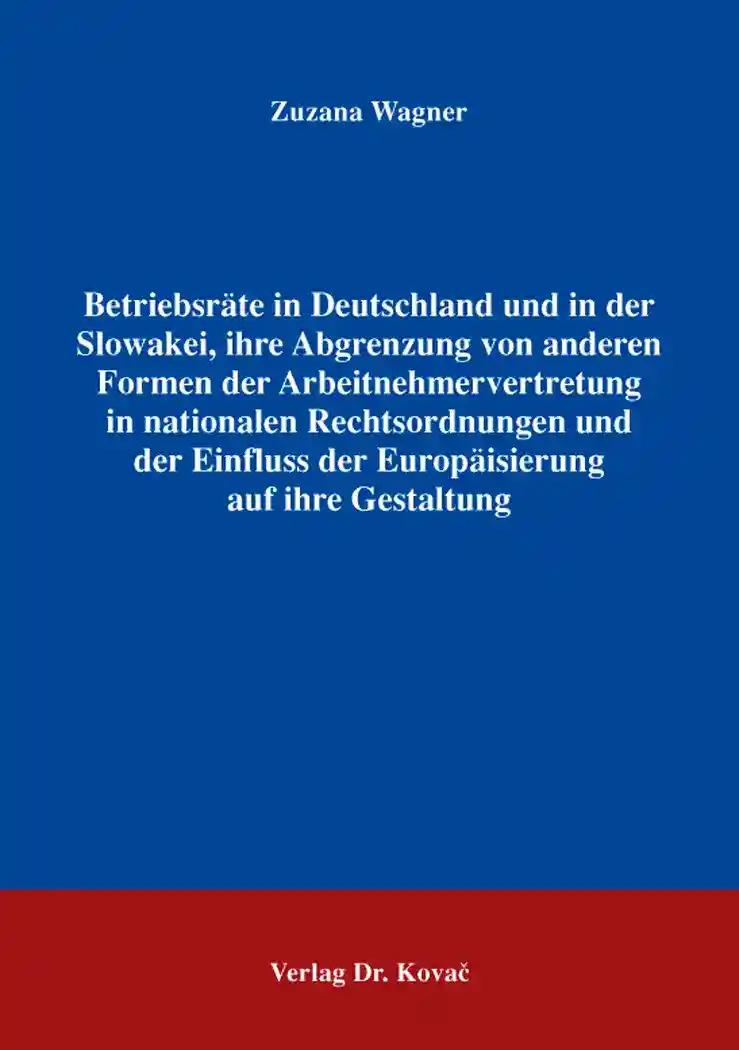Zuzana WagnerBetriebsräte in Deutschland und in der Slowakei, ihre Abgrenzung von anderen Formen der Arbeitnehmervertretung in nationalen Rechtsordnungen und der Einfluss der Europäisierung auf ihre Gestaltung
Schriftenreihe zum internationalen Einheitsrecht und zur Rechtsvergleichung, volume 47
Hamburg 2014, 500 pages
ISBN 978-3-8300-8140-1 (print) |ISBN 978-3-339-08140-7 (eBook)
About this book deutschenglish
Employed labor is a kind of self-realization of a person in their professional life. At the same time, it is a prerequisite to achieving the goals of the employer. Finding the right balance between self-realization of the "weak" employee and the objectives of the "strong" employer in the design of employed labor, is, among other things, task of the legislators; first national and now increasingly European legislators. The aim is to create a regime of worker participation in the design of working conditions that reconciles the freedom of enterprise and the right of property with basic laborer’s rights. Forms of such participation range from rights of information to laborers’ participation in business decisions that affect workers. In order to simplify communication between employers and employees, especially in large companies, and to face the employer with a professional negotiator that represents the rights and interests of all workers, different forms of employee representation bodies at various levels are provided by the National legal systems. One type of such institutions representing laborers’ interests are the legal councils for employers, which are to be distinguished from both unions and employer’s participation in decision-making. The European Union is limited in its legislative authority regarding representative employee bodies. A firm legislatorial regulation in matters of employee participation is not desired by the European states. There are, however, several guidelines at the European level and a multitude of adjudications that grant representatives of both employees and employers their rights of information and discussion. This dissertation reasons how the statutory representative bodies are governed by the national laws of the Slovak Republic and Germany, how they evolved, what legal status these laws have and how committal they are, whether and to what extent the national legal systems in this area are consistent with EU law and how national legal systems are influenced by EU law.Keywords
BetriebsratBetriebsvereinbarungBetriebsverfassungsrechtEU-RechtGesetzliche ArbeitnehmervertretungKollektives ArbeitsrechtMitbestimmungMitwirkungRechtsvergleichungSlowakisches ArbeitsrechtIhr Werk im Verlag Dr. Kovač

Möchten Sie Ihre wissenschaftliche Arbeit publizieren? Erfahren Sie mehr über unsere günstigen Konditionen und unseren Service für Autorinnen und Autoren.
